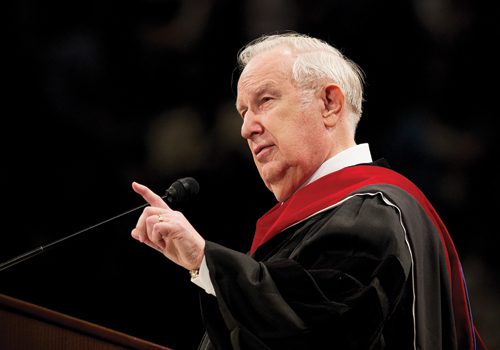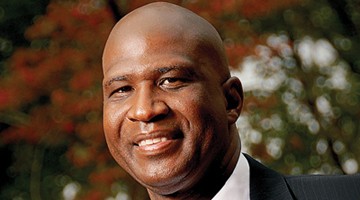There is light and love ahead when we muster courage to act in faith.
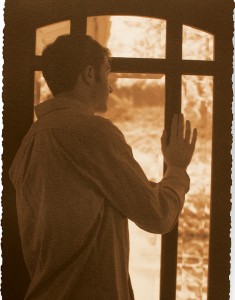 We all need healing. For some of us that need is great today. There are likely among us those who are brokenhearted because a relationship has ended badly. Others are in pain because their parents have decided to divorce or a loved one has renounced the Church. Some have learned recently that they have a chronic illness, and others have just relapsed into addictive behavior for what seems like the hundredth time. Some have wondered if depression or anxiety will always be a suffocating influence in their lives, while others are going through a loss that seems both unfair and unrelenting. Others are drowning in loneliness and isolation, while still others are constantly placed on the margins. Perhaps these folks look or talk or feel different from what may be considered “the norm.”
We all need healing. For some of us that need is great today. There are likely among us those who are brokenhearted because a relationship has ended badly. Others are in pain because their parents have decided to divorce or a loved one has renounced the Church. Some have learned recently that they have a chronic illness, and others have just relapsed into addictive behavior for what seems like the hundredth time. Some have wondered if depression or anxiety will always be a suffocating influence in their lives, while others are going through a loss that seems both unfair and unrelenting. Others are drowning in loneliness and isolation, while still others are constantly placed on the margins. Perhaps these folks look or talk or feel different from what may be considered “the norm.”
Even the greatest among us, Jesus Christ, experienced betrayal, mocking, abandonment, loss of loved ones, and physical pain as part of His mortal experience. My hope is to encourage you to apply the principles that lead to healing. I will try to explain clearly three principles that can lead to healing and to knowing that all healing is a gift from Jesus Christ, for, as Isaiah said, “with his stripes we are healed” (Isa. 53:5).
My talk is titled “Healing = Courage + Action + Grace.” I start with an example from Martin Luther King Jr. that clearly highlights these principles. Look for courage, action, and grace as you read his words:
Almost immediately after the [bus boycott] started we had begun to receive threatening telephone calls and letters. They increased as time went on. . . .
One night . . . I couldn’t sleep. It seemed that all of my fears had come down on me at once. . . .
I had heard these things before, but for some reason that night it got to me. . .. I went to the kitchen and . . . I sat there and thought about a beautiful little daughter who had just been born. . . . I started thinking about a dedicated and loyal wife, who was over there asleep. And she could be taken from me, or I could be taken from her. And I got to the point that I couldn’t take it any longer. . . . With my head in my hands, I bowed over the kitchen table and prayed aloud . . . : “Lord, I’m down here trying to do what’s right. I think I’m right. I am here taking a stand for what I believe is right. But Lord, I must confess that I’m weak now, I’m faltering. I’m losing my courage. Now, I am afraid. . . . I have nothing left. I’ve come to the point where I can’t face it alone.”
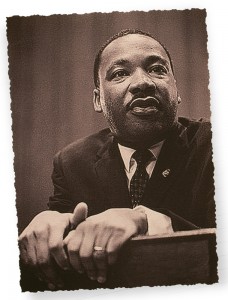
“At that moment I experienced the presence of the Divine as I had never experienced him before. Almost at once my fears began to go. My uncertainty disappeared. I was ready to face anything.”
—Martin Luther King Jr.
It seemed as though I could hear the quiet assurance of an inner voice saying: “Martin Luther, stand up for righteousness. Stand up for justice. Stand up for truth. And lo, I will be with you. Even until the end of the world.”
I tell you . . . I heard the voice of Jesus saying still to fight on. He promised never to leave me alone. At that moment I experienced the presence of the Divine as I had never experienced Him before. Almost at once my fears began to go. My uncertainty disappeared. I was ready to face anything.
Can you see in this example the pathway to healing? Having courage to face a difficult situation and stand for truth, acting in faith by turning to God in prayer, and seeking peace and strength from the Lord through His grace.
What then is healing, and why should we seek it? My favorite talk on the subject of healing is a BYU devotional given by Elaine S. Marshall in 2002. I assign it in every class I teach, from undergraduate to doctoral level. I suggest you read it more than once and think about her definition of healing:
On [my] first day as a nurse, I assumed cure, care, and healing to be synonymous. I have learned they are not the same. Healing is not cure. Cure is clean, quick, and done—often under anesthesia. . . . Healing, however, is often a lifelong process of recovery and growth in spite of, maybe because of,enduring physical, emotional, or spiritual assault. It requires time. . . .
It requires all the energy of your entire being. You have to be there, fully awake, aware, and participating when it happens.2
Healing is much more than “getting better” or “having our problems go away.” Healing is growth, development, and maturation. In a word, healing is change. It takes time and energy and struggle, but healing teaches us. As Marshall said: “Healing can help us to become more sensitive and more awake to life. . .. Healing invites gifts of humility and faith. It opens our hearts to . . . truth, beauty, . . . and grace.3
Healing
But remember, even with all that beauty and growth and grace, healing does hurt.
Some people I have had the privilege of working with over the years have had a hard time reconciling the fact that healing requires suffering and yet is a gift from our Savior. How is it that a loving God would allow us to suffer? I have come to realize that my Savior cares more about my growth than He does about my comfort. One evidence of His love is that He does not spare me from the suffering I need for my development and progression, even when I get mad at Him.
And, unlike humans, He does not punish me when I am mad nor does He hold a grudge or remind me of it the next time my heart is right and I ask for His help.
I love how Elder Dallin H. Oaks, a member of the Quorum of the Twelve Apostles, described healing: “Sometimes a ‘healing’ . . . lifts our burden. But sometimes we are ‘healed’ by being given strength or understanding or patience to bear the burdens placed upon us.”4
As we consider the key components for healing, let us remember that, in the end, healing is a gift from our Savior that will likely require effort and suffering on our part so that we can grow and develop through our struggles. The gift is often the refinement we experience in the process.
Courage
Let’s shift our focus for a moment to courage. Simply defined, true “courage is not the absence of fear; it is the making of action in spite of fear.”5 For healing to occur, we have to be courageous enough to move forward when we are afraid. I have chosen three examples in which courage is needed for healing to occur.
First, we have to be courageous to face the truth regarding what needs to change in our lives. This type of intense introspection requires tremendous honesty with ourselves. As Jesus said, “Ye shall know the truth, and the truth shall make you free” (John 8:32; see also 2 Ne. 28:28), but that is usually only after it hurts us first. Most of what I know about the courage to heal I have learned from clients. I have noticed, among those who do find healing, a real commitment to learning the truth about themselves, which is never easy.
Second, it takes tremendous courage to be congruent—to live a life in which our public and private priorities are in sync and in which what we experience on the inside is consistent with what we show on the outside. I like what marriage and family therapist William J. Doherty said about integrity: “Integrity is harmony between our moral beliefs and our actions.”6
I learned this lesson the hard way when a colleague at Syracuse University gave me some pointed and painful feedback. After one faculty meeting he said to me, “It must be exhausting being you, living a two-faced life.”
When I asked him what he meant, he explained, “I cannot believe that the guy I see at work, who seems to say anything that will help him fit into the group he is with, is the same guy who attends church on Sunday.”
A little context may help with this story. I was hired at Syracuse as a 28-year-old recent graduate who was a white male conservative Christian working in a liberal, social activist program.
Unfortunately my colleague was correct. I desperately wanted to fit in and was unsure about what I really thought and felt regarding socially and politically intense topics like same-gender marriage. I was posing and pretending to try to fit in. As James in the New Testament said, “A double minded man is unstable in all his ways” (James 1:8).
My colleague’s feedback became more personal, both for him and for me, as he went on to say, “Look, as a black man, if the Ku Klux Klan came to town, I know you would hide me in your basement, but as soon as they came to your door, you would turn me over to save yourself.”
In essence, my colleague was saying, “I do not trust you because you do not have the courage to be congruent in all settings.”
It took time to internalize that feedback and realize he was right. I had to figure out what I believed—not what my parents had said was right or the Church or my employer, but what I believed was right. I had to get right between God and me. Then I had to learn to live congruently so that my actions were in harmony with my moral beliefs—which took courage.
I have learned over the years that posturing, posing, peacocking, and pretending are exhausting and bring unhappiness. Having the courage to be congruent brings a settled and peaceful feeling. I like what Elijah in the Old Testament said about congruence: “How long halt ye between two opinions? if the Lord be God, follow him” (1 Kings 18:21).
Third, we have to develop the courage to live counter to the world’s dominant culture. You know what I am talking about—the culture in which money, sex, material possessions, fame, violent behavior, and carnal exploits are the currency for success. We live in a world in which appearance and approval are the keys to social status and power. To find healing, we have to develop the courage to say no to this dominant culture. I love what Morrie Schwartz said to Mitch Albom about living counter to the culture in the book Tuesdays with Morrie:
The culture we have does not make people feel good about themselves. We’re teaching the wrong things. And you have to be strong enough to say if the culture doesn’t work, don’t buy it. Create your own.7
Read what President Thomas S. Monson said about having the courage to live by truth and to avoid the unhealthy dominant culture:
Let us have the courage to defy the consensus, the courage to stand for principle. Courage, not compromise, brings the smile of God’s approval. . . . A moral coward is one who is afraid to do what he thinks is right because others will disapprove or laugh.8
To find healing, we have to develop the courage to avoid the culture that says there is only one acceptable way (e.g., to have a specific size, hair color, or ACT score) to be a good person or even a good Christian. There are many, many ways to be a righteous, positive influence in the world. If enough of us say no to the dominant culture, it will lose its power (see Josh. 1:9).
Action
This brings us to the next part of the equation of healing = courage + action + grace.
Action is essential to healing. To act instead of merely being acted upon was a key issue in the War in Heaven before we came to this earth (see Rev. 12:7–11). According to the scriptures, “God gave unto man [and woman] that [they] should act for [themselves]” (2 Ne. 2:16), but Satan “sought to destroy the agency of man” (Moses 4:3). When pondering these scriptures, I realized that when I choose to be inactive or place myself in a state of being acted upon, I give Satan greater power in my life.
A number of scriptures describe clearly the need to act and not be acted upon (see 2 Ne. 2:26, D&C 43:8–9), but how is action related to healing? I have come to see that action is the point at which belief turns into faith. Having the courage to act in faith opens the door to grace, which is the key to healing. Learning to act in faith is one of the great challenges of mortality.
What then are the major roadblocks to acting in faith? I would suggest that procrastination and fear are two of Satan’s greatest tools to keep us in the “acted upon” position.
Think about how he does this. Maybe you tell yourself, “I totally plan on getting married. It is a great idea and I am pro-marriage, but I have to do these other things first.”
Or “I know this problem I have (insert pornography, eating patterns, or anxiety) needs to be fixed, but I have too much to do right now to put the time and energy into addressing it.”
Or “I cannot go to my bishop to resolve this sin because I am afraid he will see how far I have fallen, and he will not want to or will not be able to help me.”
Can you see how effective procrastination and fear are in meeting Satan’s objectives in our lives?
Remember, the longer we remain in an inactive state, the farther we drift from the Lord and His Spirit. As C. S. Lewis astutely described, “The more often [a person] feels without acting, the less he will be able ever to act, and, in the long run, the less he will be able to feel.” 9
How then can we overcome the tendency to procrastinate or shut down in fear? Let me propose that prayer is the simplest form of action.
When you pray, you act in faith and open the door to “blessings that God is already willing to grant, but that are made conditional on our asking for them.”10
In your prayers, be sure to speak openly, sincerely, and directly to Him who is your loving Father. Sometimes I fear our prayers are too vague and too passive to bring about the spiritual support we need.
We need to learn how to offer mighty prayer. For example, you might fervently plead, “Heavenly Father, I am procrastinating again. I am getting stuck in that old pattern. Please help me to break free. Please give me the strength to just get started and then the stamina to stick with the task.”
Or “Heavenly Father, I am totally shut down in fear. I need to move forward and act, but this prayer is all I can muster up right now. Please help me find the courage to act.”

“Even Mother Teresa had doubts. . . . Her doubt gives me hope; not that my own doubt will go away but that feelings of doubt are not as powerful as a faithful decision to act.”
—Marcus Goodyear
I promise those prayers will be heard and help will come. We call that help grace.
And remember, you can still act, even if you are afraid or feel like procrastinating. My favorite example of this type of action is Mother Teresa. I love this quote about her from writer Marcus Goodyear:
Even Mother Teresa had doubts. . . . Her doubt gives me hope; not that my own doubt will go away but that feelings of doubt are not as powerful as a faithful decision to act.
I may doubt, but I still pray. I still go to church. I still worship. . . .
Doubt is a feeling, but faith chooses to act no matter our feelings.11
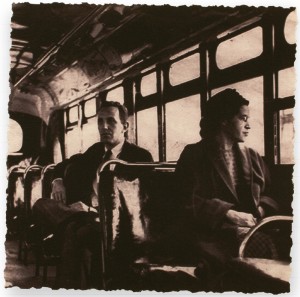
“In a moment designed to frighten and degrade, [Rosa Parks] was able to see herself as an agent and claim a space of choice.”
—Jeanne Theoharis
Another great example of acting in the face of understandable fear is Rosa Parks, known for her courageous stand on a bus in Montgomery, Ala., when she refused to give up her seat. Listen to how one biographer described Mrs. Parks’s courage to act: “Parks made an active choice in that instance. . . . In a moment designed to frighten and degrade, she was able to see herself as an agent and claim a space of choice.”12 I love that phrase “see herself as an agent and claim a space of choice.” When we have the courage to act, we open the door to healing. Mrs. Parks’s courageous act opened the door to the civil rights movement, a movement that brought a large measure of needed healing to this country.
Grace
That brings us to the final part of the equation—healing = courage + action + grace. What is grace? I love the definition provided by David A. Bednar in a devotional given while he was president of BYU–Idaho. He quoted the Bible Dictionary, which states that grace can be defined as
divine means of help or strength, given through the bounteous mercy and love of Jesus Christ.
. . . It is likewise through the grace of the Lord that individuals . . . receive strength and assistance to do good works that they otherwise would not be able to maintain if left to their own means. This grace is an enabling power.13
After reading this definition, President Bednar added, “Thus the enabling power of the Atonement strengthens us to do and be good and serve beyond our own individual desire and natural capacity.”14
The scriptures are full of examples of the grace of Jesus Christ as He ministered to people struggling to do and be good but coming up short. The scriptures teach of Him reaching out to His people at their breaking point and providing strength, patience, joy, comfort, assurance, peace, faith, hope, courage, and determination, and even wiping away the tears from their eyes (see Mosiah 24:13–16; Alma 31:31–38, 58:9–12; Rev. 21:4). The grace of Jesus Christ, His bounteous mercy and love, is available to us if we but have the courage to reach out to Him.
Sometimes that grace comes directly through the Holy Ghost, and we can feel His clear and specific love for us. Sometimes that grace comes as Christ touches another person’s heart and prompts him or her to share, bless, and uplift another. In other words, grace is often made manifest through the courage and action of a person who reaches out to serve another.
Grace is the power by which healing occurs. In every aspect of His mortal and postmortal ministry, Christ went about healing all manner of afflictions (see Matt. 9:18–25; 3 Ne. 17:9). His part is to be our atoning Savior, and our part is to be courageous enough to act. He then provides the grace and healing. However, sometimes we may not appreciate the manifestations of His grace because healing blessings do not always come in the form we ask. Sometimes His grace is made manifest by letting us sit and struggle with an issue. Again, our Heavenly Father and Savior are more interested in our growth and progression than in our comfort and convenience. Moments of struggle often bring the greatest growth.
Permit me to illustrate this point with an example from the life of my sweetheart and best friend, Sharon. In April 2002, Sharon’s 56-year-old father, Mike, suffered a major heart attack one day at work. As a result of a lack of oxygen to the brain, he was in a coma for a week. Many friends and family members prayed and fasted, he received multiple blessings, and his name was placed on the prayer roll at multiple temples, but, regardless of these efforts, it was his time to die (see D&C 42:43–48). As the months passed, we came to some measure of peace regarding his early and unexpected death.
At the time, Sharon was working with the young children at church as the Primary president. It was her turn to teach the children, and the topic was “God Hears and Answers My Prayers.” We talked a lot about that lesson and the dilemma it presented for her, and Doctrine and Covenants 18:18 and 88:64 were particularly helpful at the time.
My wife told me, “I know God hears and answers our prayers, but if in the end He is going to do what is His will, why should I pray for what I want and need? My dad died anyway because it was God’s will. My prayers have not been the same since he died.”
If you have not yet experienced that kind of despair in your prayers, you likely will. For some of you that moment is now.
So what did Sharon teach the children? Up until the night before she was not sure what to say. When the day came, she simply taught, through her tears, “I know that God hears and answers every prayer. He does not always give us the answer we want, and that really hurts. But I believe you will do better in your life by praying than by not praying. That is why I pray every day.”
Acting on true principles, even when your heart says otherwise, takes true courage. And as a result, Sharon received a measure of healing that day through the grace of Jesus Christ. One of my favorite parts about being married to Sharon—and there are many—is to listen to her pray in faith for our children, extended family, and others in need. She knows how to talk to Heavenly Father.
As my friend Ty Mansfield has described in one of the stories profiled on the Church’s website mormonsandgays.org, if we can just stay with God, trust Him, and keep doing the things that bring the Spirit into our lives, then light and healing can enter, even though at the moment things look dark and gloomy. Whether the struggle is same-gender attraction, a crisis of faith, an addiction, or a deep sense of loneliness, just stay with God. Trust Him. There is light and love ahead (see D&C 50:23–25). Again, if we can muster up the courage and take action, Christ provides the grace: courage + action + grace = healing.
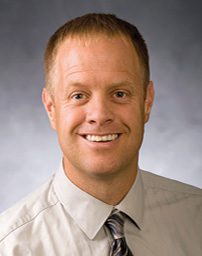 This article is adapted from a devotional address given Jan. 21, 2014, byJonathan G. Sandberg, a professor in the BYU School of Family Life. The full text, audio, and video of the address are available at speeches.byu.edu, where there are many additional examples of courage, action, grace, and healing, as well as a list of references for family members, friends, counselors, and bishops.
This article is adapted from a devotional address given Jan. 21, 2014, byJonathan G. Sandberg, a professor in the BYU School of Family Life. The full text, audio, and video of the address are available at speeches.byu.edu, where there are many additional examples of courage, action, grace, and healing, as well as a list of references for family members, friends, counselors, and bishops.
Notes
1. Martin Luther King Jr., The Autobiography of Martin Luther King, Jr., ed. Clayborne Carson (New York: Intellectual Properties Management in association with Warner Books, 2001), pp. 76–78.
2. Elaine S. Marshall, “Learning the Healer’s Art,” BYU devotional address, Oct. 8, 2002; emphasis added.
4. Dallin H. Oaks, “He Heals the Heavy Laden,” Ensign, November 2006, pp. 7–8.
5. M. Scott Peck, The Road Less Traveled: A New Psychology of Love, Traditional Values, and Spiritual Growth (New York: Simon and Schuster, 1978), p. 131; see also Rollo May, The Courage to Create (New York: Norton, 1975), p. 12.
6. William J. Doherty, Soul Searching: Why Psychotherapy Must Promote Moral Responsibility (New York: Basic Books, 1995), p. 71.
7. Mitch Albom, Tuesdays with Morrie: An Old Man, a Young Man, and Life’s Greatest Lesson (New York: Doubleday, 1997), pp. 35–36.
8. Thomas S. Monson, “The Call for Courage,” Ensign, May 2004, pp. 55–56.
9. C. S. Lewis, The Screwtape Letters (New York: Macmillan, 1977), p. 61.
10. Bible Dictionary, s.v. “prayer,” p. 753.
11. Marcus Goodyear, “Mother Teresa, CEO: Doubt Is Not Despair If You Act,” July 8, 2011, patheos.com/blogs/takeandread/2011/07/mother-teresa-ceo-doubt-is-not-despair-if-you-act; emphasis in original.
12. Jeanne Theoharis, The Rebellious Life of Mrs. Rosa Parks (Boston: Beacon Press, 2013), p. 68.
13. Bible Dictionary, s.v. “grace,” p. 697; emphasis added.
14. David A. Bednar, “In the Strength of the Lord,” BYU–Idaho devotional address, Jan. 8, 2002.
Feedback: Send comments on this article to magazine@byu.edu.







